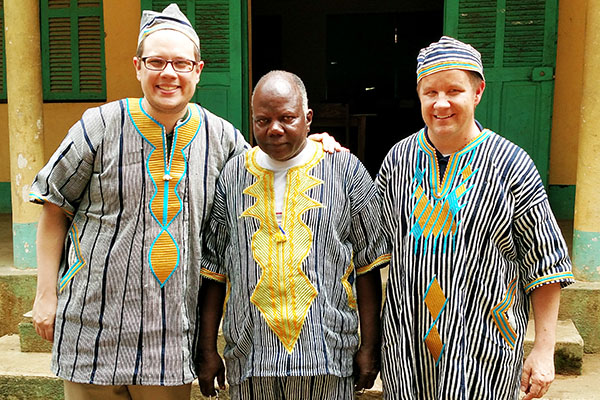
Volunteer Post
A Life Changing Experience for First-Time Volunteers
Dr. Tyson Sorenson of Utah State University and Dr. Aaron McKim of Michigan State University, recently completed their first-time Farmer-to-Farmer volunteer assignment in Guinea. After completion of their assignment, an institutional assessment, we asked each to share how the assignment affected them personally and professionally. Here’s what they had to say about their experience.
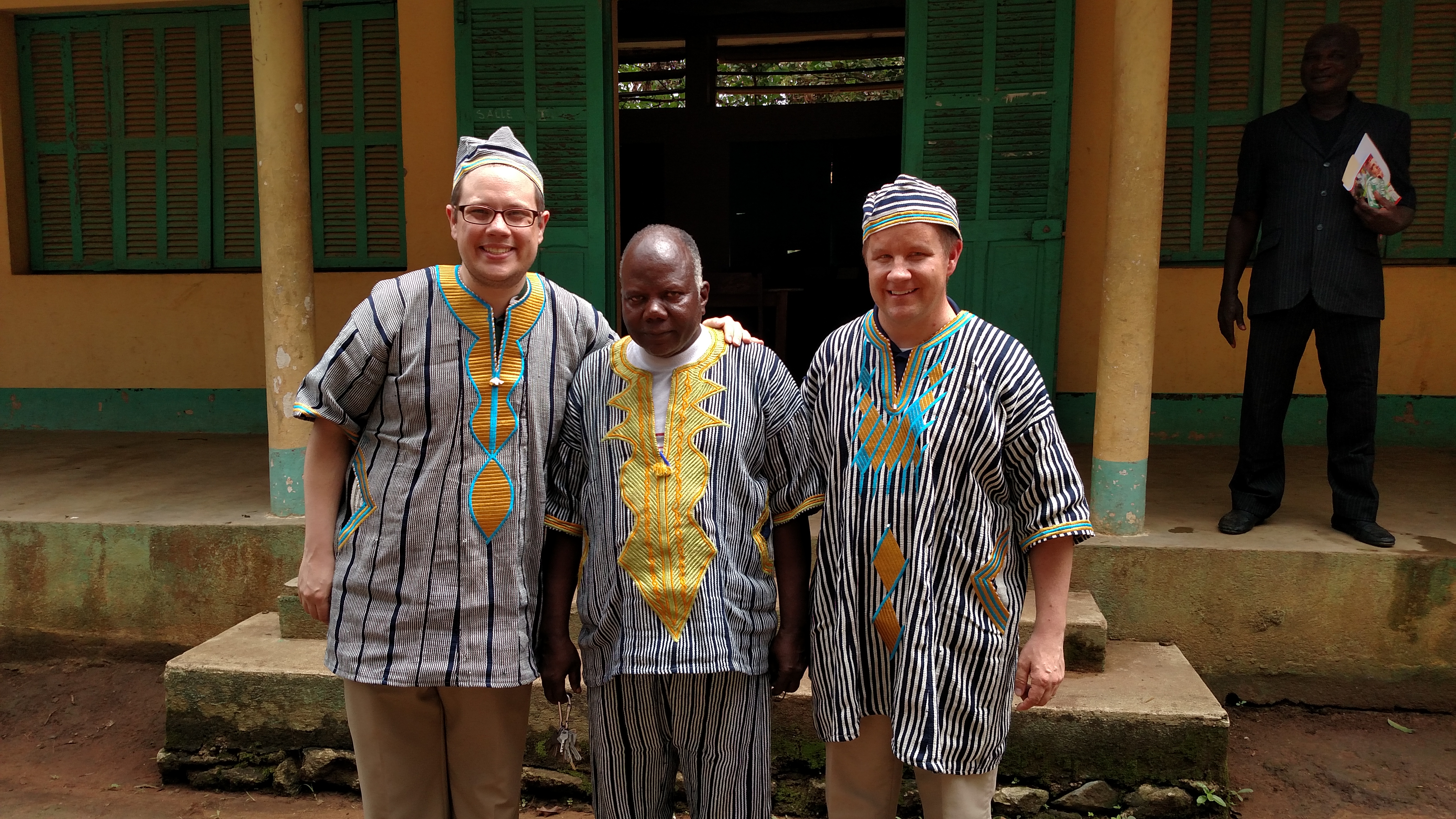
Dr. Tyson Sorenson –
This has been my first international work experience so I gained a great deal from this experience. First and foremost was the development of a positive network with Winrock International. They have been fantastic to work with. The experience working with Winrock has been exceptionally great, as they assisted in the logistics of this assignment and took care of the little details. Not only did I learn a great deal about how to get around in a foreign country (the little things a novice traveler may not know), but it has also allowed Aaron and I to be able to focus our efforts on the success of our assignment. With this relationship and network in place with Winrock, I can foresee more international assignments in the future.
This experience has been good for me professionally as it has also pushed me to be a better teacher. With the language barrier, I had to be very purposeful in word choice and exact in my language. I had to chunk into small pieces the directions I give. I teach pre-service teachers about the importance of chunking and clarity, but now I have a deeper appreciation for that pedagogical principle. Additionally, although I have participated in many institutional assessments and strategic planning activities, this was the first time I have conducted an assessment myself. With the differences in cultural norms, I learned that being flexible and adaptable to the needs of the participants is very important. Allowing them to be active participants and autonomous in their decisions regarding the strategic plan is important, even if it means altering the original plan for information gathering.
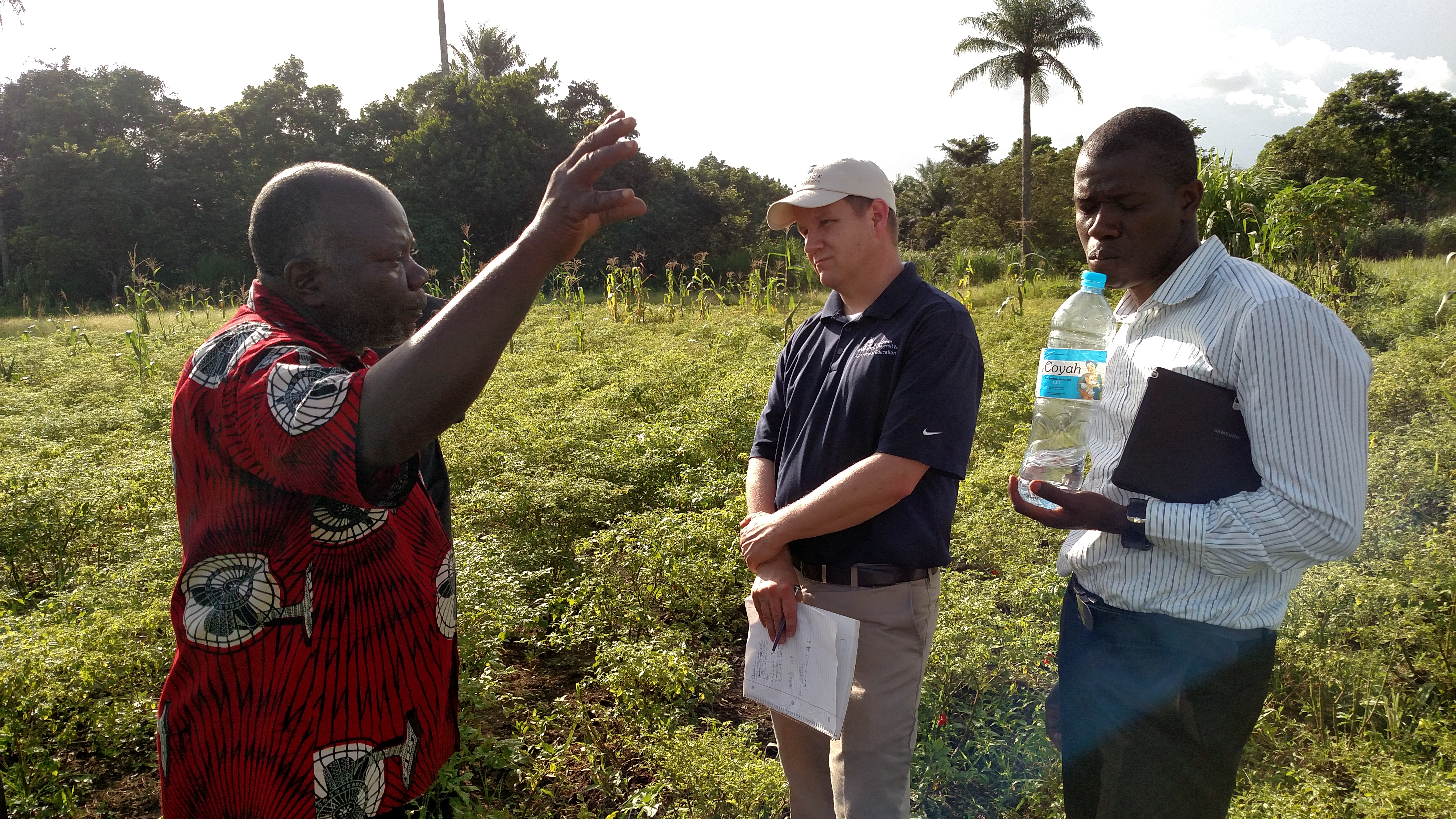
This has also been a good experience for me personally. I have learned a little about myself and the things I take for granted each day. These people have demonstrated to me how people can find happiness despite the circumstances in which they live. I have learned to be more grateful for basic amenities like warm shower water, electricity, and a law-based transportation system. I have gained a deeper appreciation for my wife and family through this experience. I saw the women and children of Guinea as such devoted and strong workers. They work so hard. The mothers carrying their children on their back, with heavy loads on their heads walking many miles to and from the fields and the market to earn a few bucks. Then they come home and do not rest, they prepare meals, cook meals, and take care of their children into the evening. As I reflect on this, I think about all that my wife does to take care of our home and I gained a deeper appreciation for her selfless service as a mother.
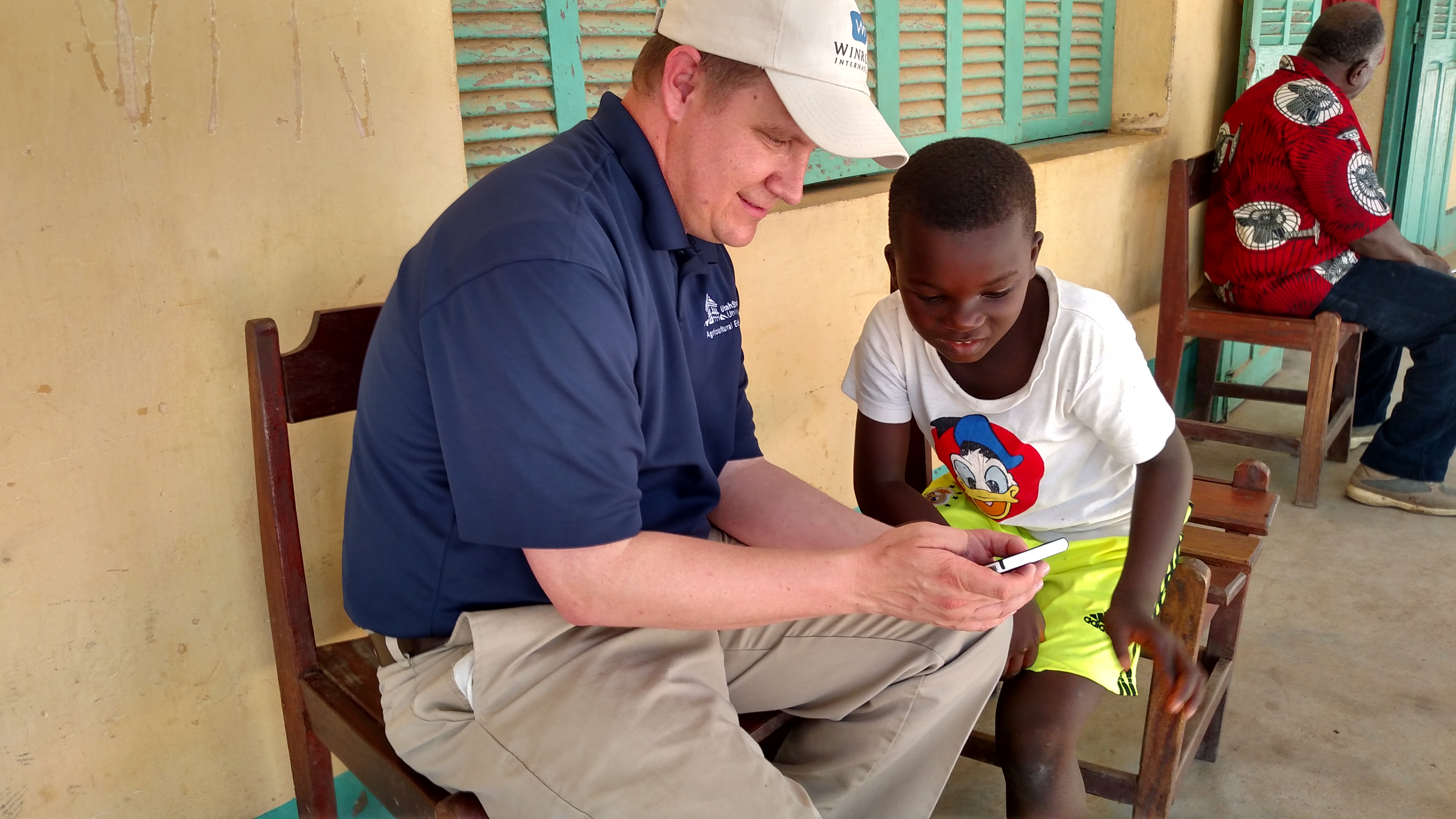
Aaron McKim –
From a professional perspective, this was my first international work; therefore, the experience developed new knowledge in how to balance American educational norms with the norms of the country visiting (e.g., managing cell phones during the training) as well as new strategies I would implement if asked to do another institutional assessment, training, and/or strategic plan (e.g., process for collecting information; requesting observations of the school during its typical operating schedule; specifically requesting budget, curriculum, mission, visions, goals beforehand). In addition to this new knowledge, I was also able to conduct a case study review of CAFPPP Macenta, which will be used to develop a manuscript for possible publication in a peer-reviewed journal. Finally, I developed contacts with Winrock employees in the United States and Guinea which I hope to use for future volunteer opportunities as well as contacts with teachers, administrators, and farmers affiliated with CAFPPP Macenta, which can be used for future collaborations (e.g., grant writing, professional development, research).
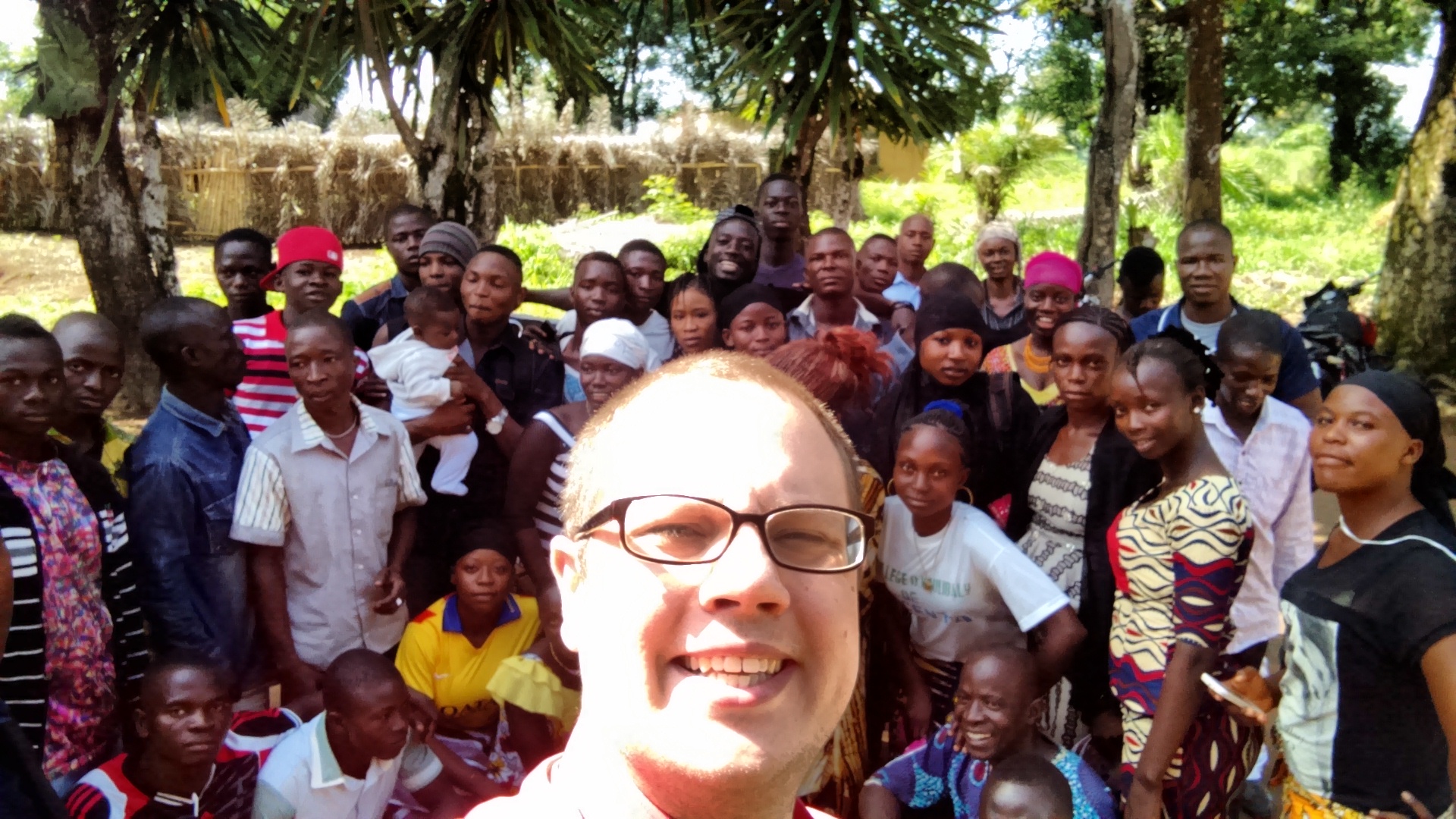
From a personal perspective, it is hard to articulate how this experience has impacted me. First, and foremost, is an appreciation for what I experience daily in the United States (e.g., traffic regulations, parking lots, warm food, hot showers, refrigeration, food safety, etc.). But, on a deeper level, this experience helped me prioritize things in life – which, for me, is a strategic balance between being there for my family, participating in high-leverage/high-impact professional work (e.g., working abroad), and achieving professional success (e.g., tenure). At the end of the day, this experience compels me to do future international work, trying out the new strategies I have envisioned from my reflections of this current experience.
